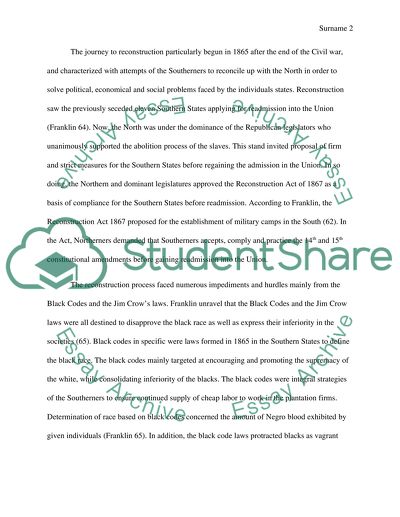Cite this document
(“The Black Codes and Jim Crow's Laws Legislation Being the Reason for Essay”, n.d.)
Retrieved from https://studentshare.org/history/1450850-the-black-codes-and-jim-crows-laws-legislation-being-the-reason-for-the-failure-of-reconstruction-in-the-us
Retrieved from https://studentshare.org/history/1450850-the-black-codes-and-jim-crows-laws-legislation-being-the-reason-for-the-failure-of-reconstruction-in-the-us
(The Black Codes and Jim Crow'S Laws Legislation Being the Reason for Essay)
https://studentshare.org/history/1450850-the-black-codes-and-jim-crows-laws-legislation-being-the-reason-for-the-failure-of-reconstruction-in-the-us.
https://studentshare.org/history/1450850-the-black-codes-and-jim-crows-laws-legislation-being-the-reason-for-the-failure-of-reconstruction-in-the-us.
“The Black Codes and Jim Crow'S Laws Legislation Being the Reason for Essay”, n.d. https://studentshare.org/history/1450850-the-black-codes-and-jim-crows-laws-legislation-being-the-reason-for-the-failure-of-reconstruction-in-the-us.


